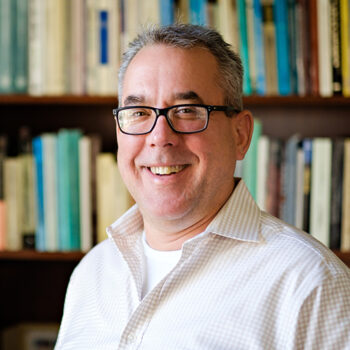A dramatic comeback for study abroad

According to IIE’s 2022 Open Doors report released today, data collected during the 2020/2021 academic year shows, as expected, that United States study abroad nearly halted amid the pandemic to protect global health and safety. The total number of U.S. students studying abroad for academic credit declined by 91%.
The good news: IIE’s Spring 2022 Snapshot shows that 83% of institutions noted an increase in study abroad numbers for 2022/2023 compared to the previous year.
Reflecting this resurgence, more than 650 Wake Forest students are expected to study abroad in 27 different countries for the fall semester of 2022 and the spring semester of 2023 combined. The University’s rebound began in 2021. From fall 2021 through summer 2022, more than 900 students traveled abroad.
Wake Forest’s international enrollment remained steady for fall 2022 with more than 800 degree-seeking international students. The countries represented grew from 64 in the fall of 2021 to 73 this year. The University’s Center for Immigration Services & Support office works diligently to facilitate the immigration process and support services for students, faculty, and staff members.
Access to study abroad for all students continues to be a top priority at Wake Forest and the rebound is supported in part by scholarships, including a $10M gift that has enabled first-generation students to choose to study abroad by substantially reducing their debt.
“Studying abroad is critical to the work of our institution, and Wake Forest is committed to not only rebuilding numbers quickly and meeting demand but providing more opportunities and support. That’s what the University wants. It’s what students want,” said Vice Provost for Global Affairs Kline Harrison. “It’s equally essential that international students come to Wake Forest and that Wake Forest students and faculty have opportunities for research and collaboration abroad.”
Study abroad strengthens teaching and scholarship
According to a study published in the Journal of Transformative Learning, faculty reported key benefits for themselves when leading study abroad programs including enhancing their cultural and intercultural learning, developing their own research interests, deepening their knowledge of students, and experiencing a sense of rejuvenation for teaching.
 Communication professor Mary Dalton sees studying abroad with her students as an opportunity to explore mutual interests and create work with fresh insights. In Copenhagen, Dalton’s students studied film history and movements, cultural media contexts, and specific sets of films. The outcome was a series of published student essays, edited by Dalton or co-edited with advanced students taking an independent study course, that contributed to their professor’s research work.
Communication professor Mary Dalton sees studying abroad with her students as an opportunity to explore mutual interests and create work with fresh insights. In Copenhagen, Dalton’s students studied film history and movements, cultural media contexts, and specific sets of films. The outcome was a series of published student essays, edited by Dalton or co-edited with advanced students taking an independent study course, that contributed to their professor’s research work.
“International experiences with students in Copenhagen, London; Vienna; Tbilisi, Georgia; Moscow; and Vietnam have each had an indelible influence on my teaching and professional activity. They have been part of my education and have enhanced my work in the classroom as well as my scholarship and creative work.”
 Politics professor Peter Siavelis, who launched the University’s study abroad program in Chile in 2011, also engages students in his research when they travel to Santiago. Students conduct interviews with government officials that contribute to his ongoing study of Latin American and Chilean politics. The student-professor collaboration is a win for Siavelis and his students.
Politics professor Peter Siavelis, who launched the University’s study abroad program in Chile in 2011, also engages students in his research when they travel to Santiago. Students conduct interviews with government officials that contribute to his ongoing study of Latin American and Chilean politics. The student-professor collaboration is a win for Siavelis and his students.
“Research projects overseas enrich both the students’ experiences and mine,” he said. They get to know the people and places where they have traveled. They learn how to adapt to different cultural situations and perspectives, and when they return to campus they bring their skills back to Wake Forest and share them both formally in project presentations and informally in conversations.”
Ready, set, go: Get the most from study abroad
In 2009, Wake Forest launched the WISE Conference offering faculty and administrators from schools worldwide an opportunity to gather and learn from one another. Over the years, more than 3,000 have attended from nearly 300 organizations to share the latest research and best practices on preparing students before, during and after traveling to get the most from their international experiences.
The 2023 WISE Conference will be held Feb. 2-4. Schedule and registration are available on the conference website.
Categories: Global Wake Forest
Wake Forest News
336.758.5237
media@wfu.edu
Meet the News Team
Headlines
Wake Forest in the News
Wake Forest regularly appears in media outlets around the world.




